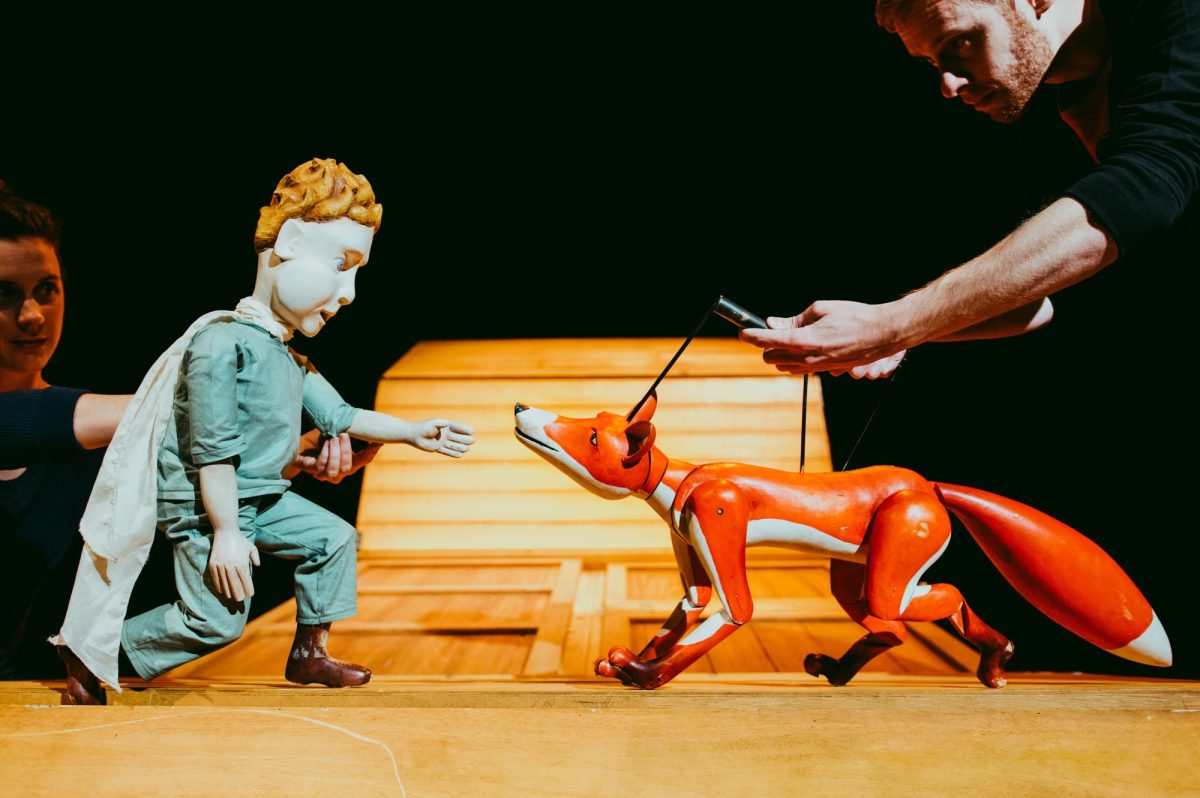I first read Antoine Saint-Exupéry’s novella The Little Prince when I was learning French at high school where it was a set text because of its relatively simple language and global popularity.
It tells the story of a pilot who crashes in the Sahara Desert and encounters a mysterious child who tells him about his own travels and encounters with strange people and creatures on other planets, before eventually allowing himself to be bitten by a snake so he can ‘return home’. The story is written in a simple but poetic style, accompanied by philosophical reflections about the virtues of childhood, the follies of adulthood and the importance of ‘seeing with the heart’ rather than the eyes.
It was written and published with the author’s own watercolour illustrations during World War II and instantly became a classic, partly because of the celebrity of its author, who was also a pioneering aviator delivering airmail across Europe, Africa and South America before flying reconnaissance missions against the Germans during the war. After surviving repeated crashes – including one in the Libyan Desert in 1943, after which he and his co-pilot were lost for four days and almost died of dehydration – he and his plane famously disappeared while on reconnaissance in 1944.
The book is also arguably a critique of various modern ‘adult’ ailments such as imperialism, narcissism, capitalism, rationalism and fascism, which are respectively embodied by the various characters the Little Prince encounters on other planets such as the king, the ‘vain man’, the businessmen, the geographer, and the baobab trees that threaten to take over and destroy his home planet unless they are identified early and torn out by the roots.
Simon Clarke’s adaptation of The Little Prince for Spare Parts Puppet Theatre has been in the company’s repertoire since 2007 and has had many outings since then. Directed by Michael Barlow and designed by Jirka Zmitko with music by Lee Buddle and lighting by Karen Cook, the production features two performers (in this case, Shane Adamczak and Louis Spencer); a huge wooden packing crate that opens, unfolds, comes apart and reconfigures to become various objects (most notably the narrator’s aeroplane, with a working propeller internally powered by a cordless drill); and a collection of carved wooden puppets ranging from the Little Prince himself (animated and voiced by Spencer) to a selection of supporting characters including the rose, the king, the businessman, the snake and the fox (all animated and voiced by Adamczak, who also played the narrator-airman).
Zmitko’s set and puppets are beautifully designed and constructed as well as being supremely functional (the puppets are clearly inspired by Saint Exupéry’s original illustrations). Buddle’s pre-recorded score for piano and voice (featuring vocals by original cast-member Mark Storen) is charming and poignant. Cook’s minimalist lighting design cleverly evokes a starry desert sky, and Spencer and Adamczak are delightfully relaxed and versatile (especially Adamczak who shifts effortlessly between multiple characters), though they both have a tendency to shout their lines and make the characters sound like idiots, a common habit in children’s theatre.
However, a wordless narrative framing device introducing the two performers as anonymous workmen in a warehouse who open the crate, discover the Little Prince puppet inside and release the story feels superfluous, and undermines the seriousness of what follows, making it feel more like a game than a life-and-death situation for both main characters. The setting up and manipulation of the set takes time and reduces dramatic tension. There is no sense of the airman-narrator becoming dehydrated or delirious, or of the Little Prince and his story being a manifestation of this. In short, the stakes are lowered, and what follows feels arbitrary and unmotivated.
Read: Book review: The Defiance of Frances Dickinson, Wendy Parkins
To be sure, it can be argued that this is an adaptation for young children, but the target audience when this reviewer attended seemed restless. One has to ask: why tell this classic story at all if not to engage with its content and themes – exile, loneliness, despair, emotional and spiritual blindness – in order to see with the eyes of the heart and reflect on the heartlessness of our own contemporary world?
The Little Prince, Spare Parts Puppet Theatre
Writer: Antoine Saint-Exupéry
Director: Michael Barlow
Adapting Writer: Simon Clarke
Designer, Set and Puppet Maker: Jirka Zmitko
Assistant Maker: Kipling Smith
Composer: Lee Buddle
Musicians: Ross Bolleter (piano), Mark Storen (vocals
Lighting Designer: Karen Cook
Production Manager: Holland Brooks
Performers: Shane Adamczak, Louis Spencer
Tickets: $29
The Little Prince will be performed at Ellie Easton Theatre, Claremont Showgrounds until 26 April 2025.





